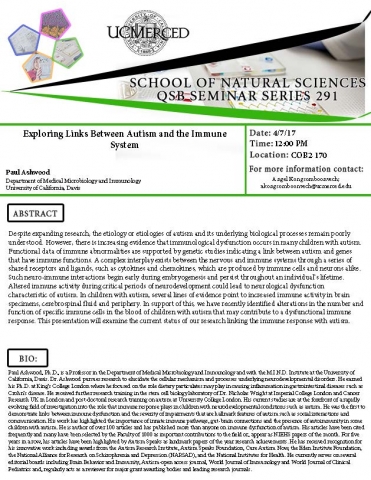Paul Ashwood, University of California, Davis
Abstract:
Despite expanding research, the etiology or etiologies of autism and its underlying biological processes remain poorly understood. However, there is increasing evidence that immunological dysfunction occurs in many children with autism. Functional data of immune abnormalities are supported by genetic studies indicating a link between autism and genes that have immune functions. A complex interplay exists between the nervous and immune systems through a series of shared receptors and ligands, such as cytokines and chemokines, which are produced by immune cells and neurons alike. Such neuro-immune interactions begin early during embryogenesis and persist throughout an individual’s lifetime. Altered immune activity during critical periods of neurodevelopment could lead to neurological dysfunction characteristic of autism. In children with autism, several lines of evidence point to increased immune activity in brain specimens, cerebrospinal fluid and periphery. In support of this, we have recently identified alterations in the number and function of specific immune cells in the blood of children with autism that may contribute to a dysfunctional immune response. This presentation will examine the current status of our research linking the immune response with autism.




